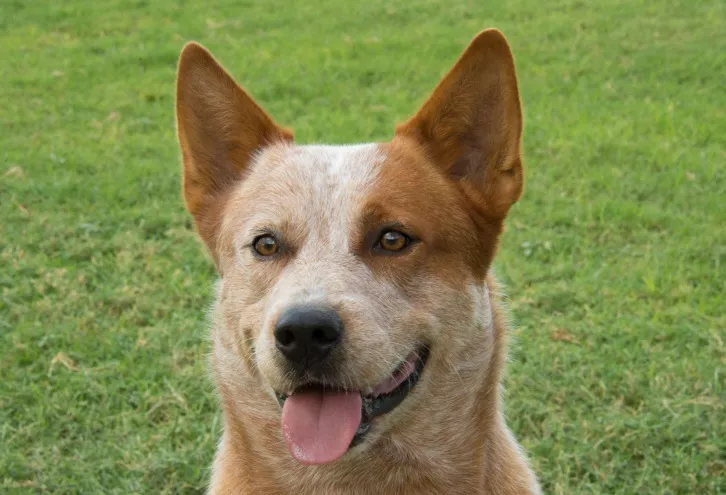Red Heelers, also known as Australian Cattle Dogs, are a robust, intelligent, and hardworking breed. They were originally bred in Australia to herd cattle, a task that required stamina, agility, and an independent spirit. These characteristics make Red Heelers both fascinating and challenging companions. Understanding their background, temperament, and specific needs is crucial for effective training.
Breed Characteristics and Temperament
Red Heelers are known for their high energy levels, intelligence, and strong herding instincts. They are loyal and protective of their family but can be wary of strangers. Their intelligence and eagerness to work can make them highly trainable, but their independent nature and strong will can also pose challenges. They need a confident, consistent, and patient trainer who can establish clear boundaries and provide mental and physical stimulation.
Early Socialization and Training
Early socialization is essential for Red Heelers. Exposing them to a variety of people, animals, environments, and experiences can help them develop into well-rounded adults. Puppy classes can be beneficial, providing structured socialization opportunities and foundational training skills. Positive reinforcement methods, such as treats, praise, and play, are particularly effective with this breed.
Basic Obedience Training
Basic obedience training should start as soon as you bring your Red Heeler puppy home. Teaching commands such as sit, stay, come, and leave it can establish a foundation for more advanced training. Consistency is key, as Red Heelers respond well to clear and predictable rules. Short, frequent training sessions can keep their attention and prevent boredom.
Exercise and Mental Stimulation
Red Heelers have high energy levels and require plenty of exercise and mental stimulation. Without adequate physical and mental outlets, they can become bored and develop behavioral issues such as chewing, digging, and excessive barking. Daily walks, runs, and play sessions are essential, as are activities that challenge their minds, such as puzzle toys, obedience training, and agility courses.
Herding Instincts and Specific Training Needs
Red Heelers’ strong herding instincts can be both an asset and a challenge in training. While these instincts make them excellent working dogs, they can also lead to behaviors such as nipping at heels, chasing moving objects, and herding other animals or even children. Training should focus on channeling these instincts into appropriate activities, such as herding games or sports like flyball or frisbee. It’s important to teach Red Heelers when and where herding behaviors are acceptable and to redirect inappropriate behaviors consistently.
Advanced Training and Activities
Once basic obedience is established, Red Heelers can excel in advanced training and various dog sports. Their intelligence and eagerness to work make them excellent candidates for activities such as agility, obedience trials, herding trials, and search and rescue. Advanced training can provide the mental and physical stimulation they need and strengthen the bond between dog and owner.
Common Training Challenges
Training Red Heelers can present specific challenges due to their independent nature and strong will. They can be stubborn and may test boundaries, particularly during adolescence. Consistent and patient training methods are essential, as is avoiding harsh corrections or punishment, which can damage the trust between dog and owner. Positive reinforcement, clear communication, and persistence are key to overcoming these challenges.
The Importance of Routine and Structure
Red Heelers thrive on routine and structure. Establishing a consistent daily routine for feeding, exercise, training, and playtime can help them feel secure and understand expectations. Structured activities, such as regular training sessions and scheduled walks, can provide the predictability they need to remain well-behaved and focused.
The Role of a Professional Trainer
For first-time Red Heeler owners or those encountering significant training challenges, enlisting the help of a professional dog trainer can be beneficial. A trainer with experience in herding breeds can provide valuable insights and techniques tailored to the specific needs of Red Heelers. Professional guidance can help address behavioral issues, improve obedience, and enhance the overall training experience.
Health Considerations and Training
Maintaining the health of your Red Heeler is crucial for successful training. Regular veterinary check-ups, a balanced diet, and appropriate exercise can ensure they are physically capable of performing training tasks. Health issues such as hip dysplasia, deafness, and eye problems can affect training, so it’s important to monitor your dog’s health and adjust training methods as needed.
See also: How to Train Your Chihuahua to Pee Outside
Conclusion
Red Heelers are intelligent, energetic, and hardworking dogs that can be both challenging and rewarding to train. Their strong herding instincts, independent nature, and high energy levels require a dedicated and consistent training approach. Early socialization, basic obedience training, ample exercise, and mental stimulation are essential for a well-behaved and happy Red Heeler. With patience, positive reinforcement, and a structured routine, Red Heelers can become loyal, well-trained companions and excel in various activities and dog sports.
Understanding and addressing the unique characteristics and needs of Red Heelers is key to successful training. Whether you are a first-time owner or an experienced dog handler, taking the time to learn about this fascinating breed and applying effective training methods can lead to a fulfilling and harmonious relationship with your Red Heeler.


